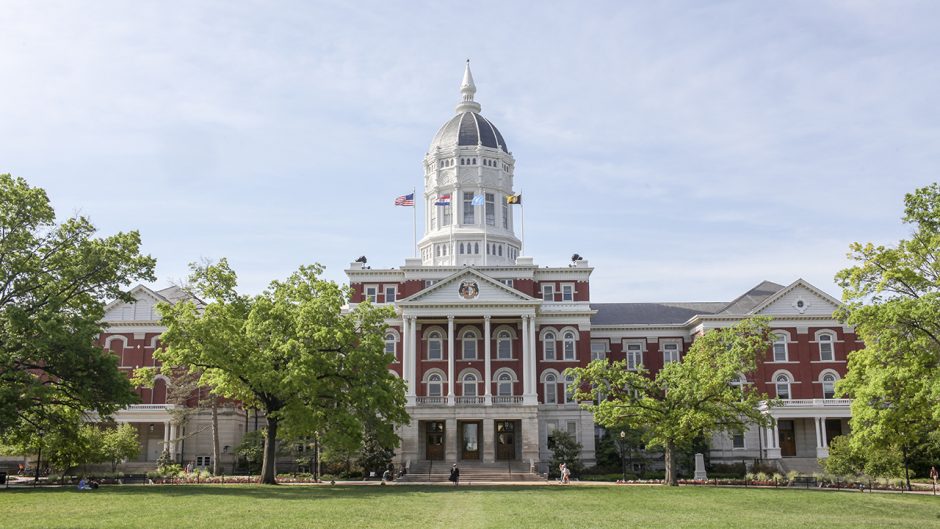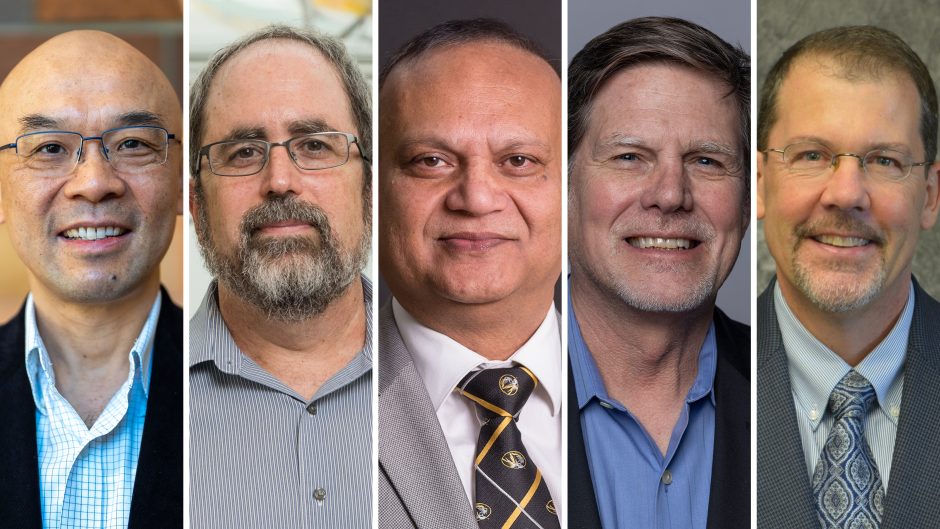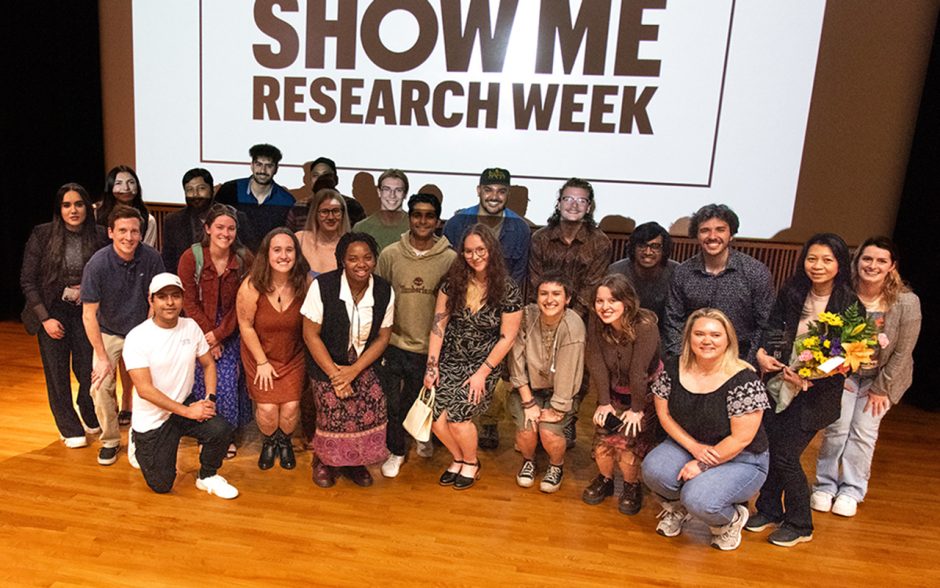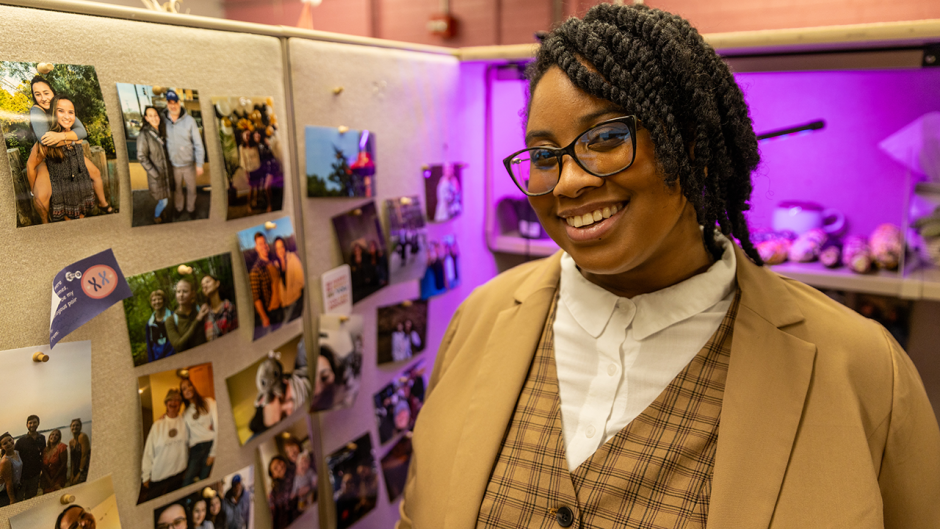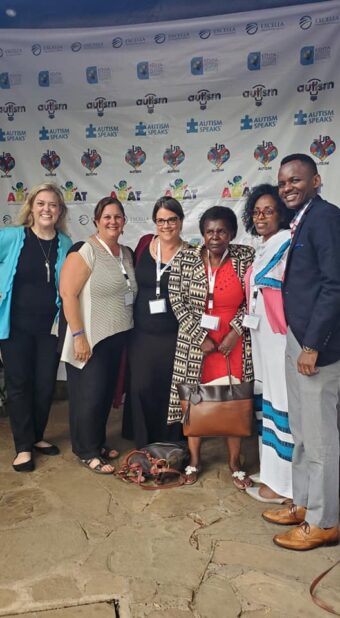
Sohl, left, met with professionals from more than 30 African countries dedicated to better understanding how to diagnose and treat autism.
July 8, 2019
When Kristin Sohl, associate professor of child health at the University of Missouri and director of ECHO Autism, diagnosed a child of a Congolese family with autism, the mother began wailing with sorrow.
“God is cursing me,” the mother cried. “I escaped all of these things from my country, only to come to America and have my son be cursed for life. I will be shunned by my entire village.”
For centuries, rural African communities have believed that those with developmental and behavioral differences are cursed or affected by witchcraft. With many Africans not knowing what the word ‘autism’ means, those who show symptoms of it are at risk of being shunned without receiving adequate care. Now, Sohl is introducing evidence-based explanations and treatments for autism to families in Africa, and eventually, all over the globe.
“While that sounds like a bold vision, it’s starting to come true,” Sohl said.
Sohl and her team partner with Autism Speaks, Missouri Telehealth Network and ECHO Institute. They give video-based coaching to expert teams on site comprised of pediatricians, counselors, teachers, parents and psychiatrists. The experts then adapt the curriculum to the needs of their audience.
“Fortunately, here in the U.S., we’ve moved to acceptance and understanding,” Sohl said. “In places like Africa, we’re still at the awareness stage.”
Since there’s still much to discover about autism and the best practices for treating it, Sohl said many families in rural communities are preyed upon by people who provide unproven answers and treatments. She described one family who took several expensive trips to India to receive stem cell transplants that would supposedly cure autism. This procedure has no scientific evidence supporting it.
“Families with autism are incredibly vulnerable to rogue practices,” Sohl said. “We breathe into these communities evidence-based knowledge, tools and resources that they’ve never heard of.”
For this reason, Sohl was thrilled to see so many parents and professionals from around 30 African countries attend the Pan-African Congress on Autism in Nairobi, Kenya. Sohl attended the conference during the spring as the keynote speaker. She gave practical solutions and resources for the common medical and psychiatric conditions in autism. The goal of the conference itself was to disseminate safe and evidence-based autism practices to rural African communities. She said this gathering was a way for medical professionals in Africa to see their worlds “get smaller.”

As the keynote speaker for the Pan-African Congress on Autism, Sohl gave practical solutions and resources for the common medical and psychiatric conditions in autism.
“I didn’t realize there were that many professionals taking care of people with autism all throughout Africa. And I don’t think they realized it, either,” Sohl said. “All of a sudden, they connected to an entire continent of people who were struggling with similar issues and who are passionate and dedicated to serving these children and families.”
Now, health professionals who used to feel isolated within their practices have not only new knowledge through ECHO Autism but also new relationships with other professionals in their area. Sohl said these connections equip those health professionals to help one another and develop acceptance and understanding of autism in their communities. She is excited to see more of these communities grow.
“ECHO allows for this virtual community to essentially bloom,” Sohl said. “Right here in Columbia, Missouri, we are changing lives around the world. To me, that is the biggest honor.”

